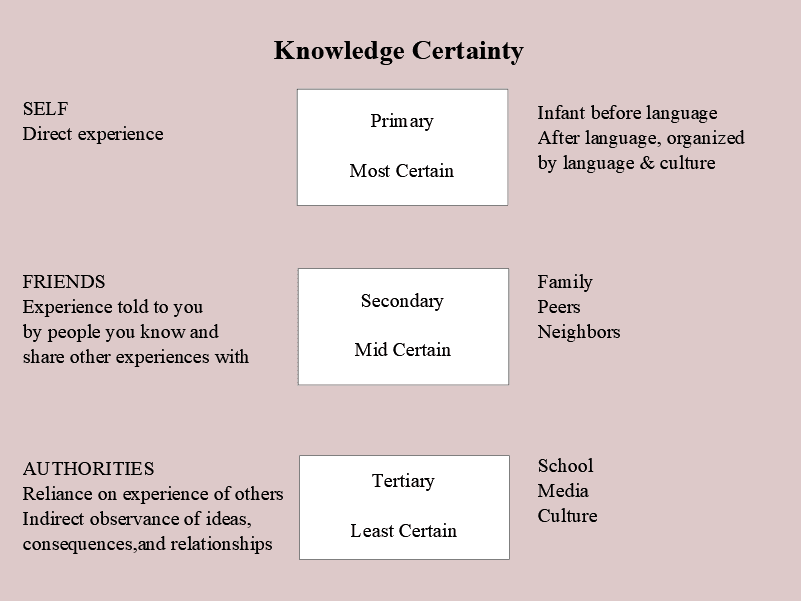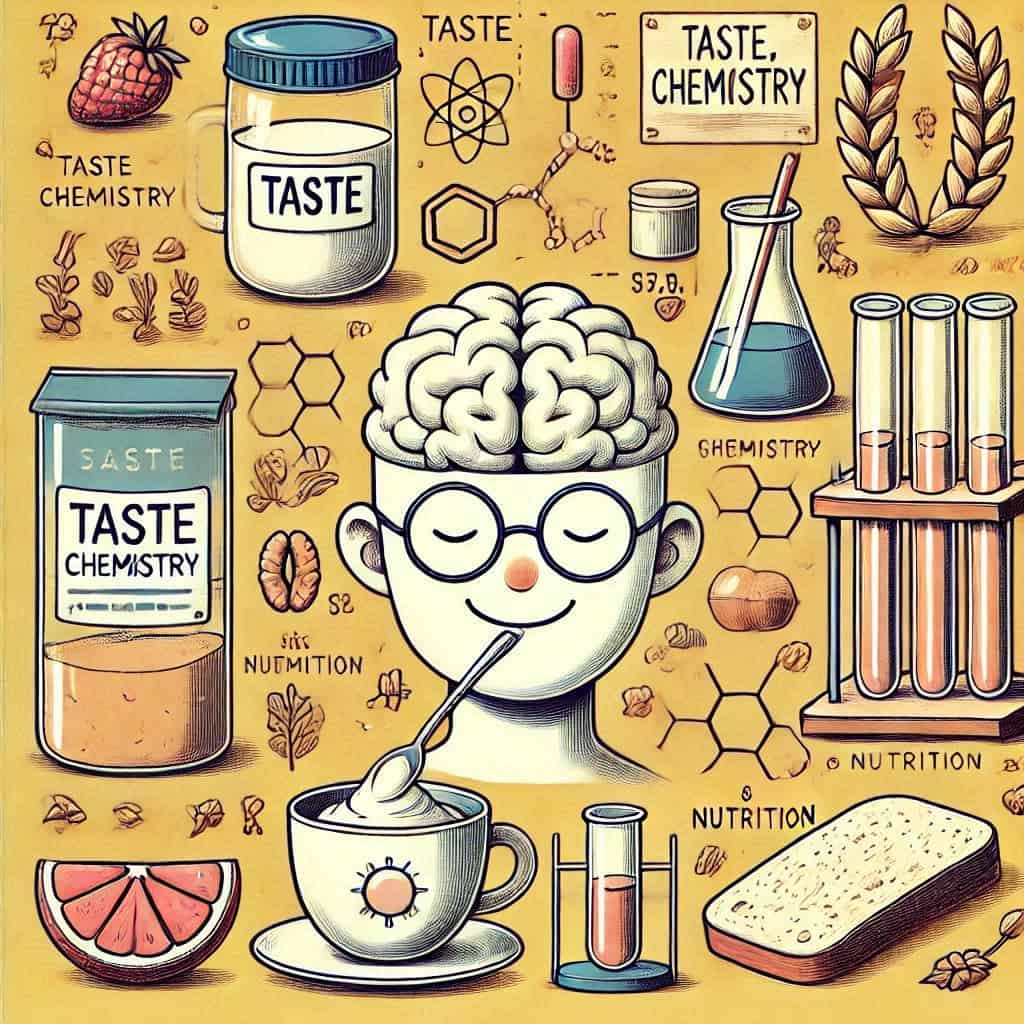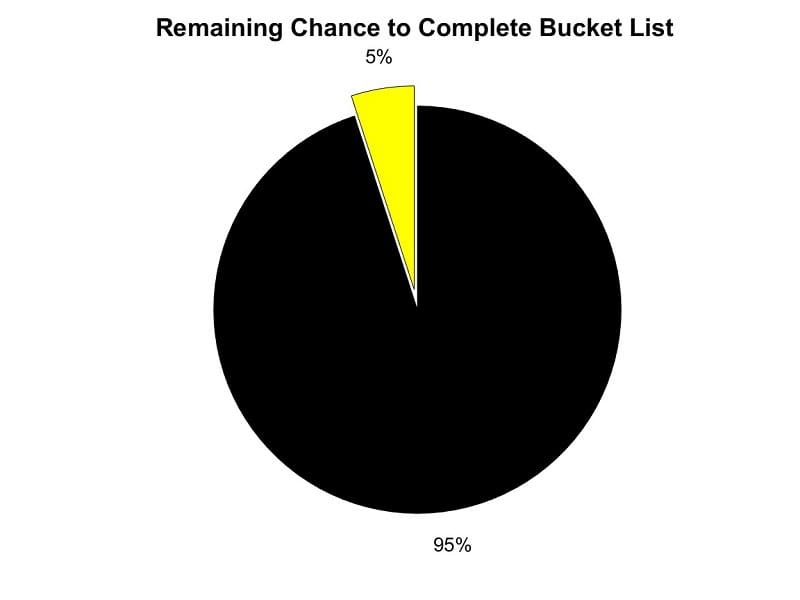Types and Certainty of Knowledge
Not all knowledge is the same. Some is more sure than others. Some knowledge can never be shaken. Some depends on what you are told.
Your most firm beliefs develop from your personal experiences and reactions. As you age, your family and then friends expose you to beliefs, knowledge, and facts that are vicariously experienced. In school and then in adulthood, you receive information from teachers and authorities that neither they nor you have personal experience with.

- Primary Knowledge, just your experience with no feedback. A prime example occurs when you were a child, before language. Automatic categorization of your experience by your brain, an inherent neural feature.
- Shapes, smells, movement and actions
- Morality is determined by personal pleasure and pain
- Secondary Knowledge, your experience but superior (parent, friends) tells you what your experience means—within the context of your culture. Assigning words and adding culture concepts—family, responsibility, place in social hierarchy—to immediate knowledge.
- Tertiary Knowledge. The typical academic situation, a teacher lays out a set of initial beliefs and develops the consequences. Another person’s experience (media, books, scientific reports) in which you are told how their knowledge fits, explains, and validates your culture.
As we mature, our primary knowledge becomes iron clad, our secondary knowledge is rarely second-guessed, and our favored authorities put life’s experiences into over-arching explanations.
It is worth checking the facts underlying those authorities’ opinions, to ensure we are following facts rather than seductive explanations that are not grounded in reality.
Facts are facts, don’t confuse them with explanations and predictions.
Diagram of Knowledge Stages from personal notes



1 thought on “Types and Certainty of Knowledge”